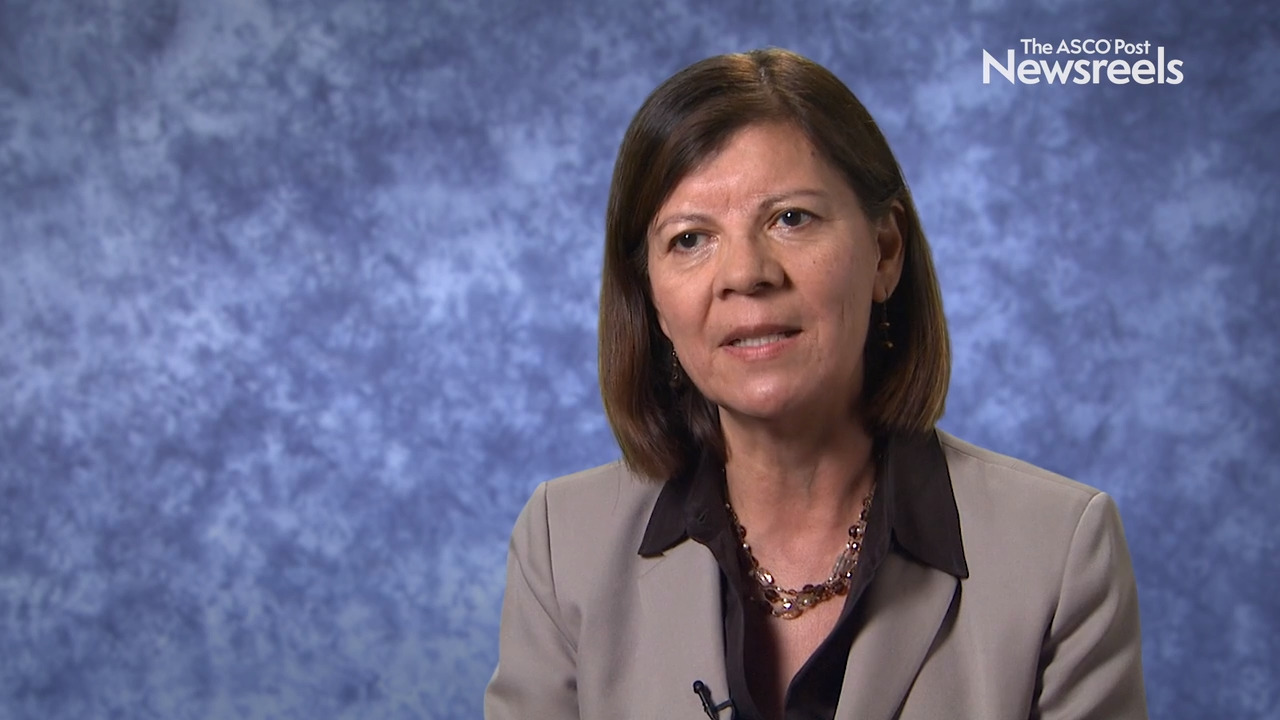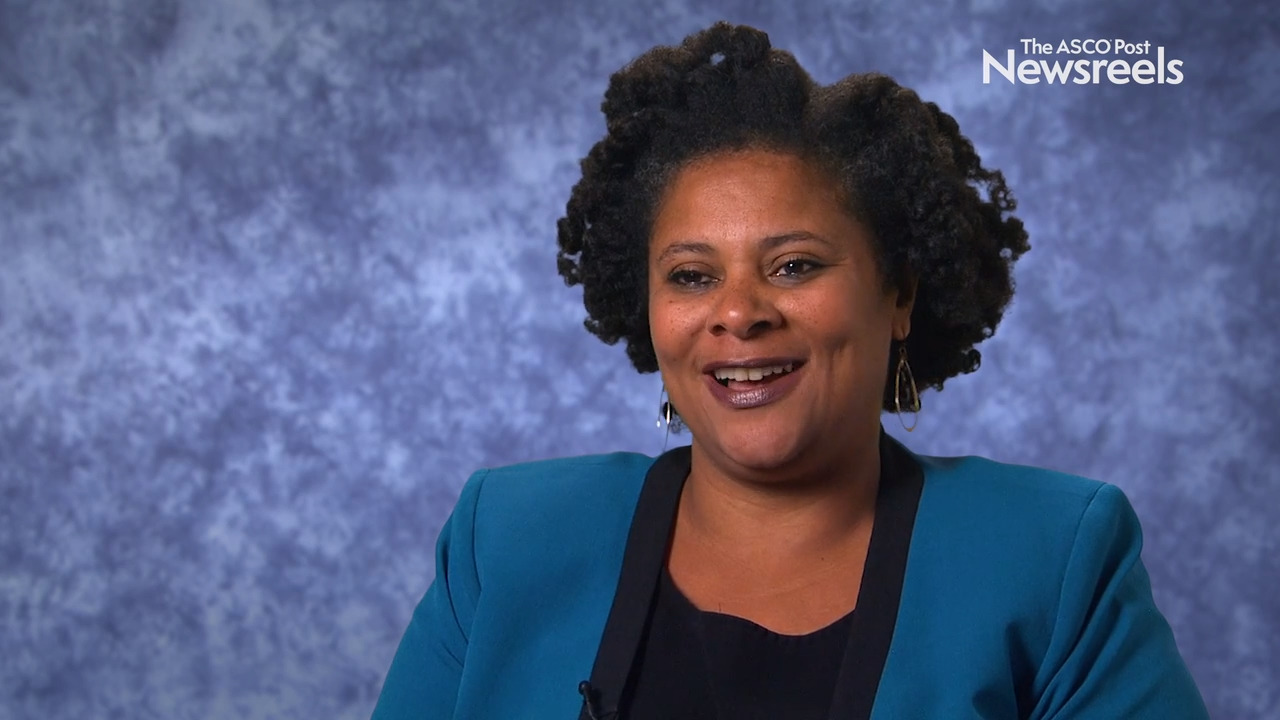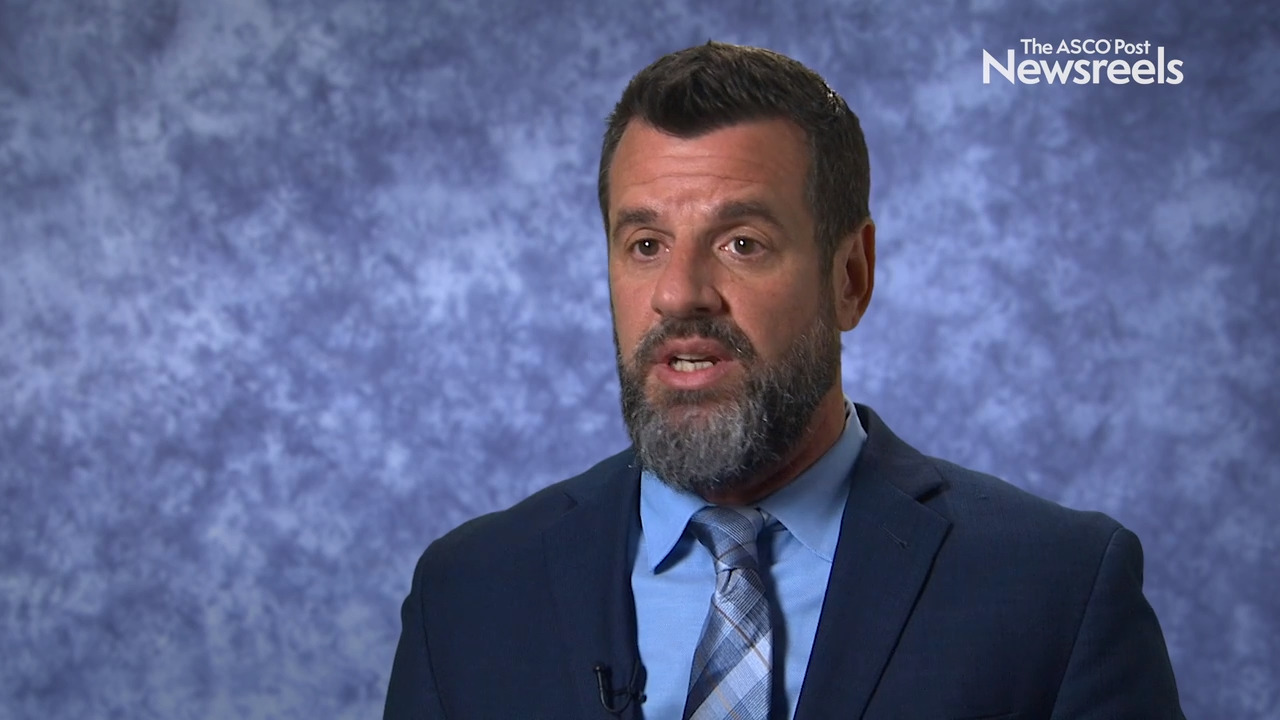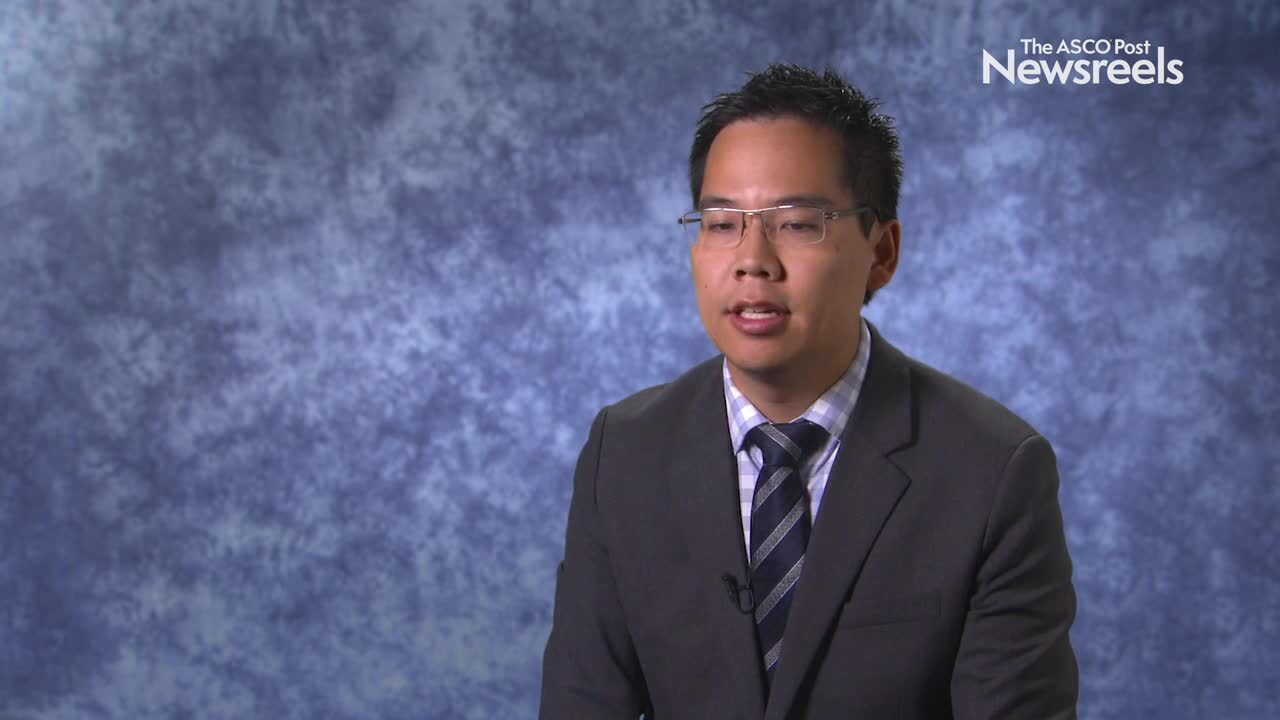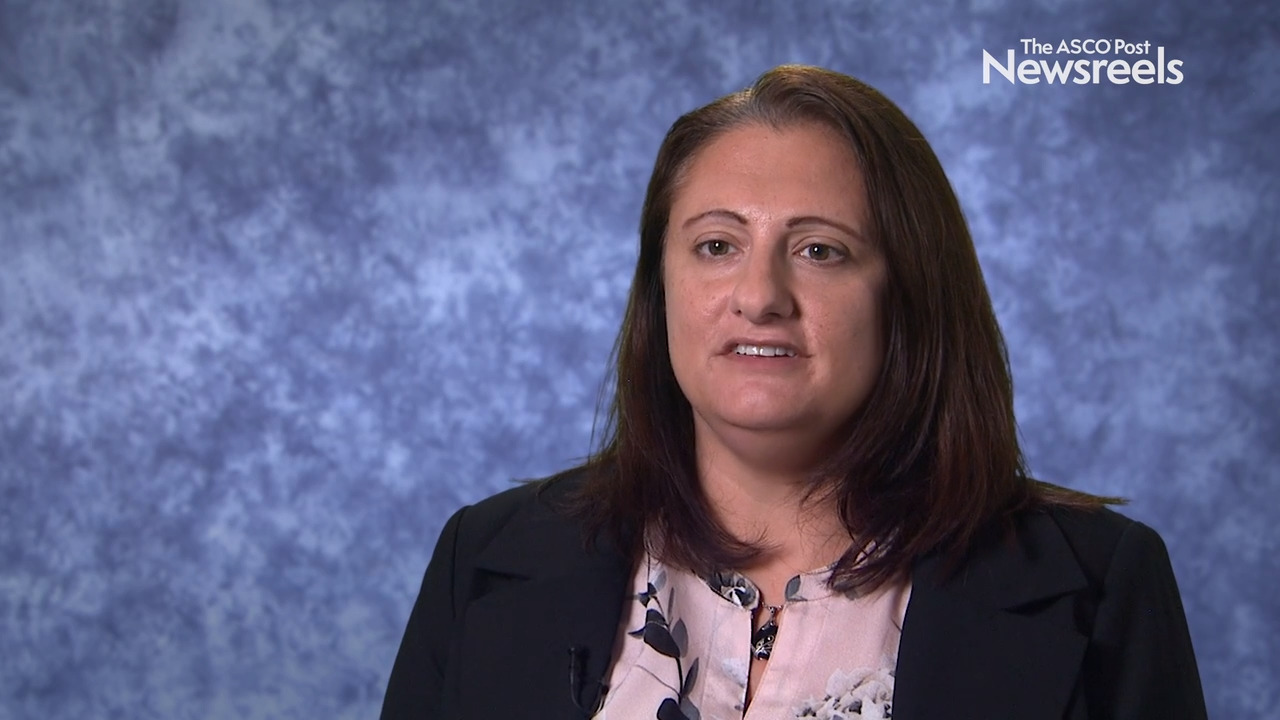Grace C. Hillyer, EdD, MPH, on Enrolling Patients in Clinical Trials: Improving Clinician-Patient Communication
2019 Quality Care Symposium
Grace C. Hillyer, EdD, MPH, of Columbia University Mailman School of Public Health, discusses the many barriers to enrolling patients in clinical trials, most notably different attitudes toward and perceptions about research studies among clinicians vs patients. Her findings point to the need for better communication between the two groups and more patient input (Abstract 170).
Elena Martinez, PhD, MPH, of Moores Cancer Center at the University of California, San Diego, discusses the challenges of ensuring diversity in precision oncology and potential solutions to address the challenges.
Karen M. Winkfield, MD, PhD, of the Wake Forest Baptist Medical Center, discusses cultural factors that contribute to cancer care disparities, the role of national policy in addressing inequities in access to care, and what local institutions can do to improve the situation.
Matthew B. Schabath, PhD, of H. Lee Moffitt Cancer Center and Research Institute, discusses the disparities in cancer care among members of the LGBTQ community and the need to collect more data in order to close that gap.
Michael Kenneth Keng, MD, of the University of Virginia, gives a status update on this international program, and discusses future initiatives which include coaching mentorship and publishing articles on quality care (Abstract 7).
Angela M. Stover, PhD, of the University of North Carolina at Chapel Hill, discusses ASCO’s initiative to develop patient-based performance measures for assessing and managing symptoms. The measures have made substantial differences in reducing nausea, constipation, and insomnia (Abstract 173).
